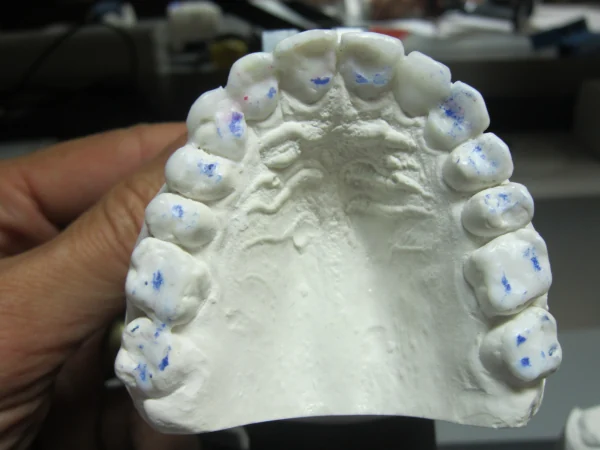- Office Hours Mon - Fri 9:00 am – 4:00 pm EST
It is not possible to be a “complete” dentist without a comprehensive understanding of occlusion. Occlusion is the foundation for everything a dentist does that involves teeth. A thorough knowledge of occlusion is the basis for understanding why teeth get loose, why they wear excessively, break cusps, fracture restorations, or shift position. Occlusal disharmony is a primary consideration when dealing with sore teeth, sore muscles, and orofacial pain, including a high percentage of chronic tension headaches.

Damage to the biting surfaces of teeth is called “occlusal disease”. It is the most common cause for patient discomfort and dissatisfaction with treatment. It is also the most neglected diagnosis, which is a sad commentary because early diagnosis and treatment of very recognizable signs of occlusal disease can prevent the progression of damage to the dentition. Without an in-depth understanding of occlusal principles it is impossible to be predictive in achieving a successful restorative result, even on simple restorations involving the occlusal surface. In fact, a knowledge of occlusion is essential for predictable success in treating any and all types of occlusal damage.
As an integral part of the total occlusion, the anterior teeth are a critical protector of the posterior teeth. This inter-relationship has tremendous importance for both the front teeth and the back teeth. An understanding of anterior guidance is the key to predictable comfort and long-term maintenance of the entire dentition. The development of a functionally harmonious occlusion must depend on pure guesswork if the rules for perfecting the anterior/posterior relationship are not followed. An understanding of this total functional harmony is also the guiding premise for establishing the most attractive, functional, and stable smile design as form and function are interdependent.
Occlusal equilibration is one of the most important clinical skills that is absolutely essential for adequate patient care. Knowing when, how, and why to choose equilibration over (or in combination with) other treatment modalities for correcting occlusal disharmony is a learnable skill that must not be compromised. Yet far too many dentists are lacking in this skill and they pay dearly for that shortcoming.
Of all the subject matter included in the Dawson Academy curriculum, achieving a working knowledge of occlusion elicits the greatest excitement because the benefits of gaining proficiency in occlusal diagnosis and treatment are so important to every day practice. It is a skill that must be learned by any dentist who wants to eliminate the wasted time of trial and error bite adjustment, or the cost in time and dollars that results from having to remake, or adjust restorations to achieve patient acceptance. This is a skill that is badly needed if any of your patients are being told that they must “get used to” their new restorations.
ADA CERP is a service of the American Dental Association to assist dental professionals in identifying quality providers of continuing dental education. ADA CERP does not approve or endorse individual courses or instructors, nor does it imply acceptance of credit hours by boards of dentistry.
Concerns or complaints about a CE provider may be directed to the provider or to the Commission for Continuing Education Provider Recognition at ADA.org/CERP.